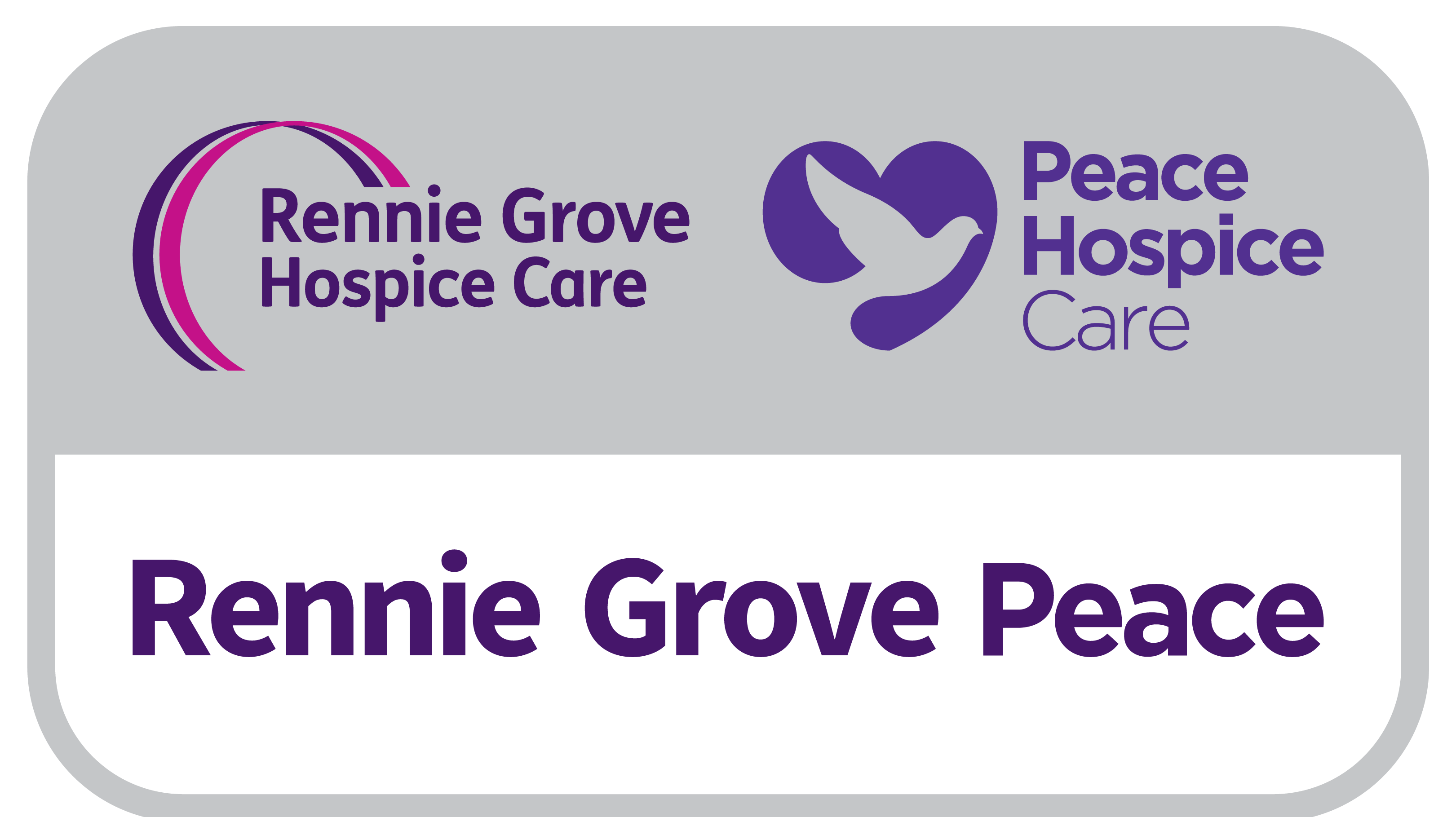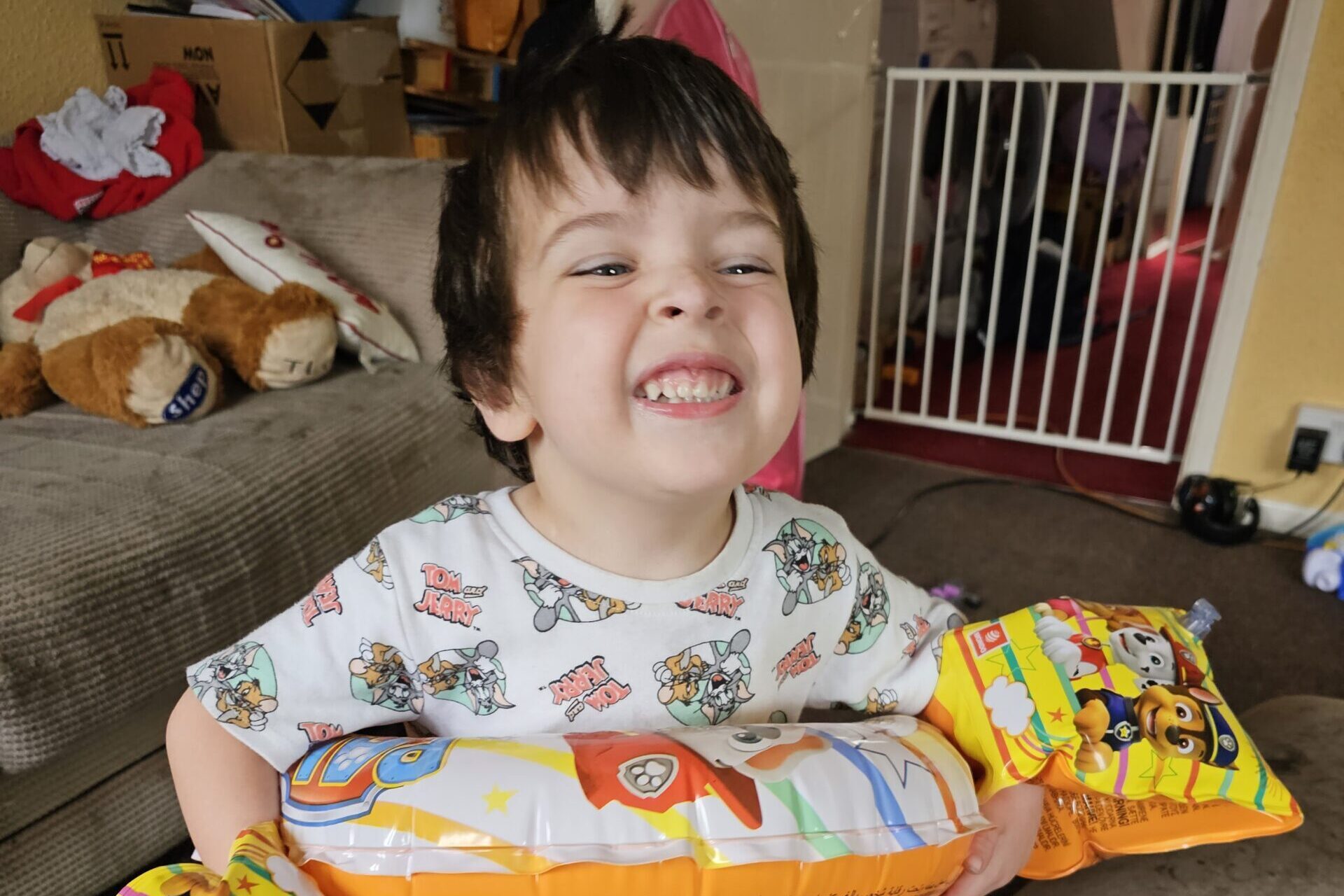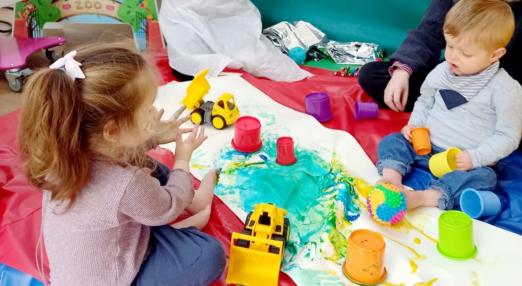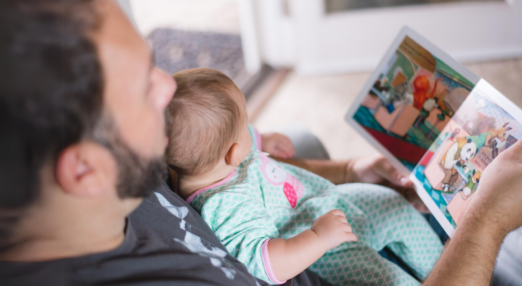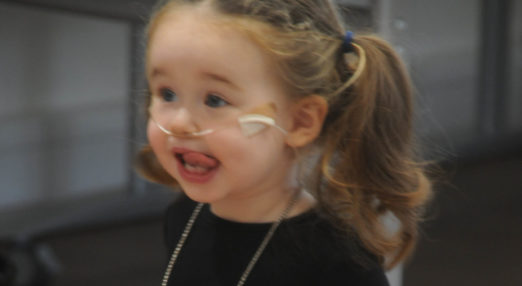Taylor’s story
Taylor, age 3, was born with activated PI3K delta syndrome (APDS), a rare auto-immune condition affecting just one person in every million. It means Taylor’s immune system is compromised and can’t protect him from illness and infection as well as it should.
Although the mutation occurred before Taylor was born, no-one knew anything was wrong at first. Until a spate of illness while Taylor was still tiny made mum Michelle suspect an underlying problem.
“From October 2020 until February 2021, he was ill with bronchiolitis every couple of weeks,” says Michelle. “We must have made about 15 visits to children’s A&E during that time. Each time, Taylor was treated and discharged home, but it seemed to me there was something else wrong.”
It wasn’t until Taylor needed another emergency hospital admission – this time by ambulance – that the family finally got referred to the children’s community nurses. When they visited the family, Michelle explained Taylor, still only nine months old, wasn’t eating or drinking and had only had one wet nappy all day.
“So it was back into hospital, where the doctor found he had an enlarged spleen. We were referred to haematology for blood tests because the doctor had concerns about juvenile leukaemia, then to Great Ormond Street Hospital (GOSH) for a bone marrow aspirate. Taylor had tonsilitis so couldn’t have the procedure as soon as planned. But by the end of April, when he was just under a year old, we finally got a diagnosis.
“In a way, it was a relief to know something was wrong and to have a name for it. But we were still in lockdown, only one parent was allowed into the appointment and now I had to tell Taylor’s dad that he had a condition that could kill him.”
On his first birthday, Taylor had a nasogastric tube fitted, to carry food and medicine to his stomach through his nose. But the following month, he was blue-lighted to GOSH with a life-threatening respiratory virus.
“We nearly lost him,” says Michelle. “He was so poorly.”
It was after this that the family was referred, via the community nurses, to Rennie Grove’s specialist Children’s Services.
Children’s Hospice at Home nurse Sarah and the charity’s Play Specialist Karen visit the family every month at home. Sarah reviews Taylor’s condition from a clinical perspective, while Karen does a play session with him.
“He absolutely loves the play sessions,” says Michelle. “Karen comes in with her big box of toys and he goes straight up to her to take away the box. Then he tries to hide the cars at the end of the session, so he won’t have to give them back!”
As well as his favourite toy cars, Karen brings arts and crafts activities to do with Taylor during the play session.
“I just sit and watch them,” smiles Michelle. “It’s so lovely to see him enjoying himself.
“Taylor does attend nursery, but when his neutrophils are low, it’s too risky for him to go,” Michelle explains.
Neutrophils are the most common type of white blood cell, acting as the immune system’s first line of defence. Their levels rise and fall for various reasons, but the standard range is 1 to 8.
“Normally, when someone is ill, their neutrophil count will be higher,” says Michelle. “But for Taylor, it’s the opposite. So, when he’s most at risk of illness – he’s least protected.”
Michelle says keeping Taylor’s neutrophil count above 1 is a win. But since he fell ill on holiday with the Epstein-Barr virus, his neutrophils are lower and taking longer to return to their usual range. “He’s home from nursery now because they’re only at 0.14,” explains Michelle. “He’s noticeably more tired and needs to nap during the day since he was ill on holiday.”
Karen and Rennie Grove’s play team can fill the gaps for Taylor while he has to be off nursery, giving him a chance to laugh, play and have fun.
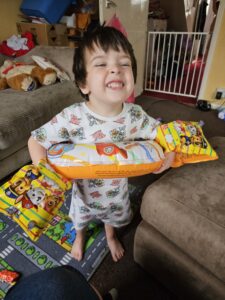
It’s an ongoing battle getting the right balance for Taylor. “I know he needs to lead as ‘normal’ a life as possible,” says Michelle, “and that means going to nursery, to soft play, and on holidays.” But in reality, all these things are a huge challenge for a family caring for a little boy with a condition like Taylor’s.
“We were on a cruise ship when Taylor fell ill this spring,” explains Michelle. Although Michelle could spot the signs very quickly, she couldn’t get Taylor to hospital as quickly as she’d have liked.
“When we finally docked, we were in two hospitals in Tenerife, then one in East Sussex soon after we landed at Gatwick, all of them liaising with his consultants at Watford (although not always following their advice), before we ended up in Watford General for four days and then GOSH for another two and a half weeks. The trouble is his condition is so rare that very few clinicians have seen it before. Even his specialists are learning all the time whenever he gets ill.”
As soon as the family got back to the UK, Michelle says Sarah rang her every day to check how Taylor was doing and discuss what could be done to help him recover.
“She was such a great support,” says Michelle. “Taylor was sleeping most of the time – and to have someone else to talk to when you’re just sat in a hospital side room on your own is such a relief.”
Taylor will start full-time nursery in September, but Karen will continue filling the gaps with play sessions at home when he can’t be with his peers.
“Nursery has been so good for him,” says Michelle. “He could only say six words before starting – now he has a much larger vocabulary. But during the times he can’t attend it’s brilliant that Karen can visit, and he can still play, learn and have fun.”
Karen also plans to schedule play sessions for after school from September, so both Taylor and his seven-year-old sister Lily will be able to benefit.
“The last few years have been hard for Lily too,” admits Michelle. “First a new little brother to get used to, then us being away so much in hospital while he was ill. They absolutely love each other – standard sibling quarrels notwithstanding! – so it will be great for them to enjoy the sessions together.”
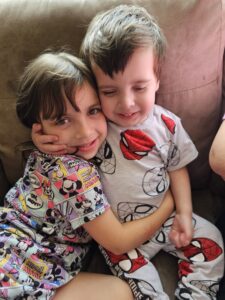
Lily also attends Rennie Grove’s sibling group sessions, hosted monthly at Grove House on a Saturday. Lily’s made friends there, and Michelle says it’s great for her to have some fun with people of her own age in similar situations.
Having built that rapport with the Rennie Grove team means Michelle and her whole family have specialist support just a phone call away whenever it’s needed.
“I can’t thank Sarah and Karen enough for what they’ve done for Taylor,” she says.
And the whole family rests easier knowing that – whatever the future holds – Rennie Grove’s Children’s Services will be there for the whole family when every moment matters.
You may also be interested in...
-

Our care for young patients and families
We provide specialist nursing care, play support and respite visits for children with life-limiting illness and their families.
Read more
-

Children’s Hospice at Home
Our Children’s Hospice at Home team support children aged 0-18 who have a life-limiting illness.
Read more
-

Support for children with life-limiting conditions
A whole-family approach to help families live the best quality life they can.
Read more
